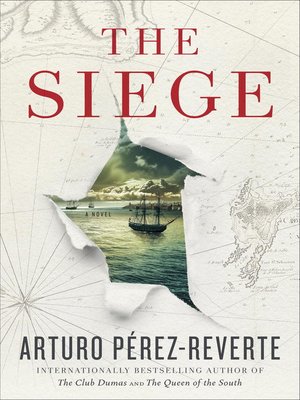The historical novel first: The Siege (English trans. 2013; Random House) by Arturo Pérez-Reverte. Pérez-Reverte is the author of the 17th century series featuring Spanish hidalgo swordsman nonpareil, Captain Alatriste. The Alatriste books' actions are fairly contemporaneous with many of those in Dumas's The Three Musketeer series, during which France and Spain often clashed in battle, particularly in what will become the Netherlands. It's not inconceivable that the fictional musketeers and equally fictional Alatriste may have shared a desperate encounter in the flooded fields of Flanders . . . .
Note: among Pérez-Reverte's previous books is The Club Dumas, the action of which is provoked by " an original handwritten chapter from Alexander Dumas's The Three Musketeers . . ."
As we all know, Alexander Dumas, after Walter Scott, is the father and godfather of the historical novel, so that is illuminating that The Last Cavalier a/k/a The Knight of St. Hermine, Dumas's long overlooked valedictory novel, deals with Napoleón and his era,
The Siege is set in the Napoleónic era, when Spain and France are again at war. Cádiz has been sieged for year by the French when women turn up murdered. It's up to Police Comisario Rogelio Tizón to investigate. It seems from the cover copy that his investigation will turn up something more than a 'mere' serial killer. This is the first time I will be reading any historical fiction about the Napoleónic wars in Spain written by a Spanish novelist.
The Adams Family is back! The Remarkable Education of John Quincy Adams (2015, Macmillon) by Phyllis Lee Levin. The title cleverly plays upon the famous Education of Henry Adams, the peculiar memoir-complaint penned by JQA's grandson. The author drew heavily upon JQA's remarkable journal, which she agrees with us may be the most remarkable historic national document created by any of our Great Men -- or Great Women, for that matter. Best of all, JQA's wife, Louisa Catherine is front and center. That she managed to stay living with this impossible -- if brilliant and principled -- man all those years alone makes her deserving of her place in the book.
I also have Eyre Crowe's With Thackeray in America, which contains some of the more famous drawing of slave auctions and so on from the 1853 visit
(Thackeray (author of Vanity Fair -- in which, coincidentally, the Battle of Waterloo plays a significant role -- among other Victorian era bestselling novels) was not impressed with the U.S.). The book isn't in print these days; the copy I have was published in 1893, however it can be seen online.
Did ever an artist have a more "artistic / romantic" name than Eyre Crowe?
Subscribe to:
Post Comments (Atom)



No comments:
Post a Comment